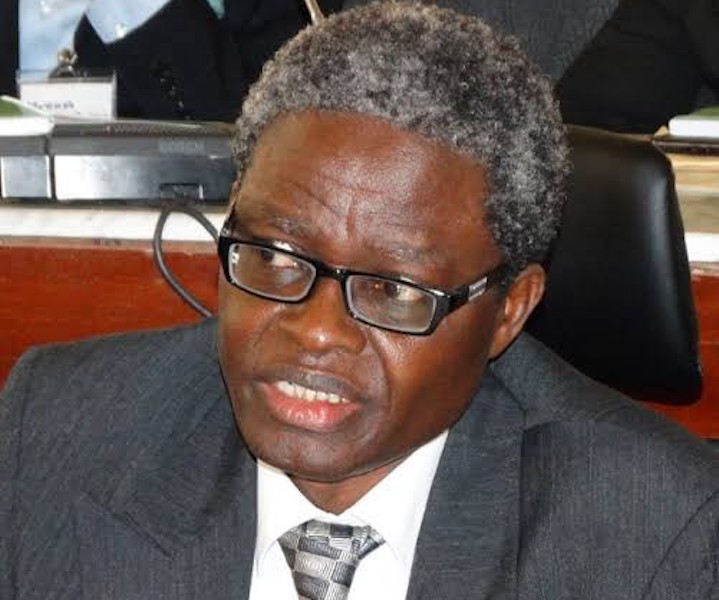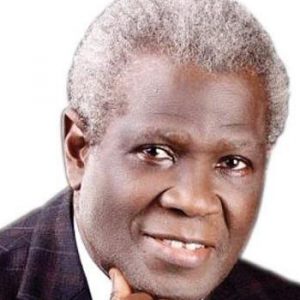The United States of President Donald Trump has threatened Nigeria under President Bola Ahmed Tinubu (PBAT) with a gun-a-blazing intervention for not doing what is necessary to curb Christian genocide in the country. The threat has been generating much controversy. One school of thought has it that there is truly the challenge of Christian genocide in Northern Nigeria. Another school has argued to the contrary, explaining that Muslims are also killed. The proponents of Christian genocide recall several past empirical cases and the Government’s little or don’t care attitude. The opponents simply deny any genocide and argued that there is a general problem of insecurity in the country that is ascribable to other different factors.
Whatever are responsible for insecurity in Nigeria, the popular view of the political analysts is that Government has the responsibility to protect either within the context of state responsibility or principle of international responsibility to protect (IR2P). The problematic is to the extent that President Trump has considered Nigeria as a country of ‘particular concern’ a designation that is also generating a counter perspective in which President Donald Trump is also considered as a ‘President of Particular Concern.’
As to what should be done in response to the US threat of guns-a-blazing intervention, it is still pending. References are made to the historical fact that everywhere the United States intervened, the jihadist terrorists purportedly being fought have always ended up as the successor government in such countries. The cases of Afghanistan and Iraq are noteworthy. By implication, it is being suggested that the Boko Haram jihadists can become the future ruling government in Nigeria. It is against this possibility that there is the need for strategic communication for strategic autonomy in Nigeria and why the National Orientation Agency has to be specially engage in general enlightenment on what guns-a-blazing intervention means, what the implications are, and what the responsibility of every citizen should be.

Challenges of Trump’s Gun-a-Blazing Intervention
President Donald Trump’s threat of a guns-a-blazing intervention in Nigeria constitutes a major challenge for national, sub-regional, and regional security in Africa. This is because any guns-a-blazing intervention is necessarily aggressive, all-force, which is always fraught with reckless military attacks.
At the national level, it first raises the violation of Nigeria’s political sovereignty by violating the provision of Article 2(7) of the UN Charter on non-intervention in the domestic affairs of other sovereign states. It is also contrary to the tradition of first securing the approval of the UN Security Council, as well as getting the prior consent of the Government of Nigeria. As such, the intended unilateral military action on the territory of Nigeria without the consent of Nigeria is a serious challenge with serious implications. The threat does not give room for mutual respect for national sovereignty.
Additionally, US unilateral guns-a-blazing intervention has the potential to strengthen the pro-Boko Haram elements in the various arms of government. This implies that the initial point of focus cannot but shift from Christian genocide to jihadist extremism. The intervention cannot but also be another area of insecurity in addition to the existing religious extremism, armed banditry, ethnic clashes, and struggle for resource control. The seriousness of the matter is to the extent that it can also precipitate a second civil war in Nigeria as the agitators for self-determination can easily take advantage of the situation. Although the threat of guns-a-blazing military intervention may also involve the cancellation of the US development aid to Nigeria, the threat has woken up the leadership of Nigeria from its slumber. This is a new challenge on its own.
More concerning at the national level is the extent to which Nigeria can be truly considered as a secular State. Constitutionally, Nigeria is declared a Secular state but opponents of this perspective often refer to the same 1999 Constitution as amended to justify their argument. It is argued that it is not normal in one single country to have a dual system of law in political governance. In the Northern region, it is the Sharia Code while it is the Criminal Code that obtains in the southern part of Nigeria. In fact, it is asked why Sharia is mentioned 73 times in the Constitution, why Grand Khadi is mentioned 54 times, why Islam is mentioned 28 times and why Muslim is mentioned 10 times and there is no single mention of Christian, Christ, or Church, etc., in the Constitution. In the eyes of Christians, Nigeria is never a secular nation-state. With any U.S. guns-a-blazing military intervention in Nigeria, the issue of secularity cannot but be raised and remain a challenge.
Secondly, at the plurilateral level, the power of national sovereignty cannot but be further sustained, and by so doing, the hegemonic domination by the big powers cannot but be also further contested. It is the national consciousness of the need to promote national sovereignty to the detriment of Euro-American hegemonic domination that is responsible for asking France and the United States to relocate their military bases in Niger Republic in spite of the fact the military bases had been assisting in the containment of jihadist extremism.
Thirdly, at the multilateral level, U.S. guns-a-blazing intervention necessarily raises the extent to which there can ever be peace in the world: the competition for global leadership is waxing stronger and weapons industry cannot thrive without the existence of crises and conflicts. An Italian Political Scientist, Riccardo Petrella, has said that ‘on fait la guerre parce qu’elle est rentable’ meaning ‘one engages in war because it is profitable.’ Why should anyone want to promote war for the purposes of economic profit or killing people just for money? Riccardo Petrella gave one more thought-provoking explanation.
He said ‘d’ici quelques années, si vous éliminez la guerre, le PIB mondial chutera. D’après le système dominant, il ne chutera pas si on est dans un autre système. Mais c’est pour cela que les dominants à l’heure actuelle ne veulent pas réduire les armements, ne veulent pas réduire les occasions de guerre, parce qu’imaginez-vous la France sans la guerre, qu’est-ce que ça serait comme économie? Imaginez-vous les Etats-Unis sans la guerre, ils deviendraient pauvres, des économies pauvres. Donc aujourd’hui, on est rentré dans une phase oú on fait la guerre parce que c’est rentable. Et vous n’aurez aucun dirigeant actuel du monde qui arrêtera la guerre.’
In English language, it means ‘in few years to come, if you eliminate war, the global GDP will fall. According to the current system, it will not fall if one is in another system. But it is for that those currently dominating do not want reduction in arms, do not want to limit the cases for war, because you can imagine a France without war, what would be the situation of the economy? Imagine a United States without war, they will become poor, the economies will be poor. Consequently, today, one has come to the phase of engaging in war because it is profitable.’
How do we interpret the profitability of war in the context of Riccardo Petrella’s point and as a challenge in the context of Nigeria? First, the U.S. is planning a guns-a-blazing military intervention in Nigeria purportedly to save the Christians from genocidal attacks. Are there no other ulterior motivations? True, President Trump’s political constituency has a significant Christian content. Since he enjoyed significant support of the Christians and he promised them to protect Christian faith wherever it is threatened, there may be honest truth in the guns-a-blazing as his objective in Nigeria. However, why the choice of guns-a-blazing and not the choice of dialogue and pressure first? Why should President Trump choose Nigeria as a theatre for promoting his policy of Making America Great Again? What really can be the gain for any US punitive military intervention in Nigeria?
As rightly observed by John Mearsheimer, U.S. ‘military confrontation with Nigeria will be economically costly, diplomatically damaging, and strategically counter-productive.’ (vide “Nigeria Strikes Back – Trump’s Threat of a vicious Military, John Mearsheimer African Sovereignty, Youtube; https://you-tube/ThzkG9GPRds?si=djCMMpWV5LMBF). In this regard, it can be posited that the likely losses of the United States cannot be as much as what is there to gain following its intended guns-a-blazing intervention in Nigeria. For example, U.S. interest in the oil resources in the Niger Delta is on the decline while the interest is now more in the northern part of Nigeria which has been adjudged to be playing host to strategic solid minerals. The United States and other big powers are much interested in the solid minerals. The mining interest cannot but be adversely affected in the event of US military intervention in Nigeria.
And true enough, the United States is still exploring how to convince Nigeria to accept the relocation of the AFRICOM from Stuttgart in Germany to Nigeria. Even though we know that such likelihood is remote, strategic military cooperation cannot but be made difficult in the event of US guns-a-blazing intervention. In essence, the foregoing raise one fundamental question on whether the world needs an international order that accepts the use of unilateral force to address problems of international insecurity or whether to accept an order that will be guided by rules of law as particularly espoused by the United Nations. These are issues that Nigeria’s quest for strategic cannot have to deal with. This is also why there has to be a strategic communication in re-presenting Nigeria to the world and making the world understand Nigeria’s own conception of strategic autonomy.
Strategic Communication for Strategic Autonomy
The word, ‘strategic’ qualifying communication, is a plan, technique, or tactic of using communication to achieve a specific goal, fulfilling a mission or influencing an audience. Communication in itself can be internal or external in character. It can also be informative, persuasive, collaborative or about emergency plans or about public relations.
And true, there are several methods of communicating strategically. One method is the use of public diplomacy which is the technique of influencing foreign publics. This technique may include the issuance of official statements, cultural exchanges, organization of educational programmes and international broadcasting. For example, the Germans have their Goethe Institute, the French have their Alliance Française, and the United States and the United Kingdom have their Voice of America and the British Council respectively.
In Nigeria, there are also peculiar means of strategic communication. For example, the Arewa Broadcast Media Practitioners Forum (ABMPF) recently organized a high-level security summit on Monday, November 10, 2025. The summit was held in Birnin Kebbi and chaired by the Sultan of Sokoto, Alhaji Muhammad Sa’ad Abubakar III, alongside Lt.-General Abdulrahman Bello Dambazau (Rtd.), former Chief of Army Staff and former Minister of Interior. The summit, which brought together broadcasters, policy makers, security experts, etc., was to evolve ‘practical communication strategies capable of enhancing public trust, countering violent extremism, and supporting ongoing national security reforms.’ The summit is largely organized in reaction to President Trump’s threat of guns-a-blazing in Nigeria. More important, the summit does not only fall within the domain of public diplomacy, but also under the method of media relations. The summit was organized by media broadcasters. Besides, media relations involve press releases, interviews, media briefings, and press conferences.
A third method of strategic communication is digital and social media communication which involves targeted content, influencer partnerships, audience analytics and real-time engagement. Crisis communication is another method which requires the adoption of a rapid response frameworks, damage control statements, as well as scenario planning. It is essentially about preventing reputational collapse.
Stakeholder engagement, which is about community or townhall meetings, policy consultations, surveys and roundtables, information campaigns involving videos, SMS broadcasts, radio jingles, posters, and branding and reputation management, is another method of strategic communication. There are also the methods of internal communication, requiring the use of newsletters, internal briefing, staff meetings, organizational culture, giving strategic narratives involving story-telling, myth-building, narrative competition, as well as lobbying and advocacy communication which is generally targeted to influence policy makers.
As good as all the foregoing ten methods of strategic communication may be, which of them is or are more appropriate for Nigeria to adopt in responding to the US threats of guns-a-blazing and, particularly for the enablement of strategic autonomy? This question arises in light of the fact that strategic communication is necessarily purposeful, goal-oriented, as well as audience-focused. The attitudinal disposition of an audience requires special focused understanding. When an attitude is not well known and understood, a strategy can be misplaced. A good message can also be wrongly conveyed. The message may also be misconstrued by the targeted audience. This largely explains why strategic communication as a technique is critical when applied in specific contexts.
In other words, what do we mean by strategic communication for strategic autonomy in the context of Nigeria? Strategic communication requires research, planning and in-depth analysis in order to ensure that messages are correctly conveyed and in accordance with intended mission and strategy. In fact, strategic communication is about harmonizing various communication tools and disciplines in order to achieve a shared or common value. And perhaps, most importantly, it involves building trust and legitimacy through building strong relationships and developing ethical culture. When we therefore talk about strategic communication for strategic autonomy, we simply imply the need to evolve a strategy to communicate the purpose and essence of strategic autonomy, how strategic communication can or should be used to promote strategic autonomy, especially that Nigeria’s Minister of Foreign Affairs, Ambassador Yusuf Maitama Tuggar, is currently promoting strategic autonomy as a foreign policy objective.
As explained by Foreign Minister Tuggar, ‘the Tinubu administration has developed a foreign policy agenda defined by Nigeria’s aspirations in the 21st century, Strategic Autonomy, and predicated on the pillars of Democracy, Demography, Development and Diaspora.’ More importantly, Ambassador Tuggar had it that ‘the idea is to avoid the booby trap of entangling alliances or ideological over-alignment, but rather, to focus on shared interests and partnerships of purpose. Binary alignments inhibit nations like Nigeria with size and scale to remake the world’ (for more detailed analysis, vide Bola A. Akinterinwa, Olatunji Olateju, and Usman Sarki, eds., Strategic Autonomy as a Foreign Policy Grand Strategy for Nigeria: The Doctrine of 4-Ds as Definienda (Lagos: Bolytag International Publishers, 2025)(under press).
In achieving this foreign policy agenda, it is argued here that the adoption of a specific or special communication strategy be adopted. Policy and capability may not be sufficient to achieve the status of strategic autonomy. With a well-articulated strategy for communication, efforts at achieving strategic autonomy have the potential to be strengthened, better defended and projected. Public perceptions cannot but be better shaped, as well as better help in building legitimacy and popular support. In this regard, strategic communication for strategic autonomy therefore requires building a coherent national narrative, in which the identity and values of who is being targeted are underscored.
It also requires the alignment of words with actions, strengthening domestic cohesion, by especially reducing misinformation and polarization, as well as building citizen confidence in public institutions. It additionally requires the enhancement of diplomatic influence, particularly in defending national interest against great-power pressure. The bottom line is ensuring that Nigeria acquires the capacity to remain a principled and an autonomous actor. Nigeria must be able to counter all foreign narratives, as well as being able to leverage soft-power. The adoption of a strategic communication cannot but have the ultimate and main objective of countering and preventing all narratives that seek to, or undermine Nigeria’s sovereignty or misrepresent Nigeria’s national interest. In the quest for strategic autonomy, strategic communication as a tool must be institutionalized to allow for coordination among the messaging units across government and training of diplomats, public servants, and military personnel in strategic messaging.
Without jot of doubt, strategic communication is like a biological umbilical cord that ties the fetus to the placenta and delivers oxygen and nutrients while removing waste during the pregnancy of a woman. In other words, strategic communication connects Nigeria’s quest for strategic autonomy, on the one hand, and Nigeria’s national capacity and capability, on the other. In this regard, there is, on the one hand, President Trump’s threat of guns-a-blazing military intervention aimed at stopping the killings of Christians in Nigeria. On the other hand, how should the Government of Nigeria respond to the threats? How should the Government carry the people of Nigeria along in its response to the threats? How should the Government garner the people’s trust and legitimacy? What really should be the best form of strategic communication to be adopted? These questions are raised because the way strategic communication is oriented and managed cannot but largely determine the outcome and nature of strategic autonomy. Government will need to go beyond narrative framing to underscoring citizen diplomacy through media relations by working with domestic and international media outlets. Demonstrations of commitment and capability are quite necessary. This is the time there must be coordination between and among all arms of government, especially in speaking with only one voice. And more importantly, Government must prepare for the implications in the event there is no military intervention and the image of President Donald Trump has to be tainted at the end. This is one challenge that must not be ignored.
Stay ahead with the latest updates!
Join The Podium Media on WhatsApp for real-time news alerts, breaking stories, and exclusive content delivered straight to your phone. Don’t miss a headline — subscribe now!
Chat with Us on WhatsApp








